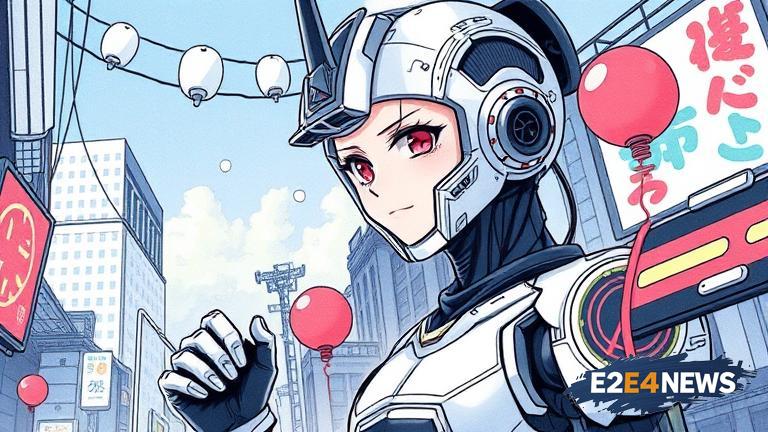The advent of generative AI has revolutionized the way we create and consume content, but it also poses significant risks for the manga and anime industries. As AI-generated content becomes increasingly sophisticated, it is becoming harder to distinguish between human-created and AI-generated works. This raises concerns about intellectual property rights, as AI-generated content may infringe on existing copyrights. The manga and anime industries, which rely heavily on intellectual property, are particularly vulnerable to these risks. Creators and publishers are worried that AI-generated content may dilute the value of their original works, making it harder for them to monetize their creations. Furthermore, the use of AI-generated content may also lead to a loss of jobs for human creators, as AI algorithms can produce high-quality content at a fraction of the cost. The Japanese government has taken steps to address these concerns, including the establishment of a task force to explore the impact of AI on the creative industries. However, more needs to be done to protect the rights of creators and ensure that the benefits of AI are shared fairly. The rise of AI-generated content also raises questions about authorship and ownership, as it is unclear who owns the rights to AI-generated works. This lack of clarity may lead to disputes and lawsuits, which could have significant financial and reputational consequences for creators and publishers. In addition, the use of AI-generated content may also lead to a homogenization of styles and ideas, as AI algorithms may rely on existing works to generate new content. This could stifle innovation and creativity, as human creators may feel pressured to conform to established styles and genres. To mitigate these risks, it is essential to develop clear guidelines and regulations for the use of AI-generated content in the manga and anime industries. This may include the establishment of standards for AI-generated content, as well as mechanisms for creators to opt-out of AI-generated content that infringes on their rights. The development of AI-generated content also raises questions about the role of human creators in the production process. As AI algorithms become more sophisticated, it is possible that human creators may be relegated to secondary roles, such as editors or curators. However, human creators bring a unique perspective and creativity to the production process, and it is essential to preserve their role in the industry. The manga and anime industries have a long history of innovation and creativity, and it is essential to ensure that the rise of AI-generated content does not stifle this innovation. By developing clear guidelines and regulations, and by preserving the role of human creators, it is possible to harness the benefits of AI while protecting the rights and livelihoods of creators. The use of AI-generated content also raises questions about the impact on fans and consumers, who may be unaware that the content they are consuming is AI-generated. This lack of transparency may lead to a loss of trust in the industry, as fans and consumers may feel that they are being misled. To address this concern, it is essential to develop clear labeling and disclosure standards for AI-generated content, so that fans and consumers are aware of what they are consuming. The rise of AI-generated content is a complex and multifaceted issue, and it will require a coordinated effort from creators, publishers, and regulators to address the risks and challenges it poses. By working together, it is possible to ensure that the benefits of AI are shared fairly, and that the rights and livelihoods of creators are protected. The future of the manga and anime industries depends on it, and it is essential to take action now to mitigate the risks and harness the benefits of AI-generated content. The Japanese government has announced plans to invest in AI research and development, with a focus on the creative industries. This investment may lead to the development of new technologies and tools that can help to mitigate the risks of AI-generated content. However, it is essential to ensure that this investment is targeted and effective, and that it prioritizes the needs and concerns of creators and publishers. The rise of AI-generated content is a global issue, and it will require international cooperation and coordination to address the risks and challenges it poses. The manga and anime industries are global industries, with fans and consumers all over the world. It is essential to develop global standards and guidelines for the use of AI-generated content, to ensure that the rights and livelihoods of creators are protected. The use of AI-generated content also raises questions about the impact on the environment, as the production and distribution of AI-generated content may require significant resources and energy. To address this concern, it is essential to develop sustainable and environmentally-friendly practices for the production and distribution of AI-generated content. The rise of AI-generated content is a complex and multifaceted issue, and it will require a coordinated effort from creators, publishers, regulators, and fans to address the risks and challenges it poses. By working together, it is possible to ensure that the benefits of AI are shared fairly, and that the rights and livelihoods of creators are protected.
